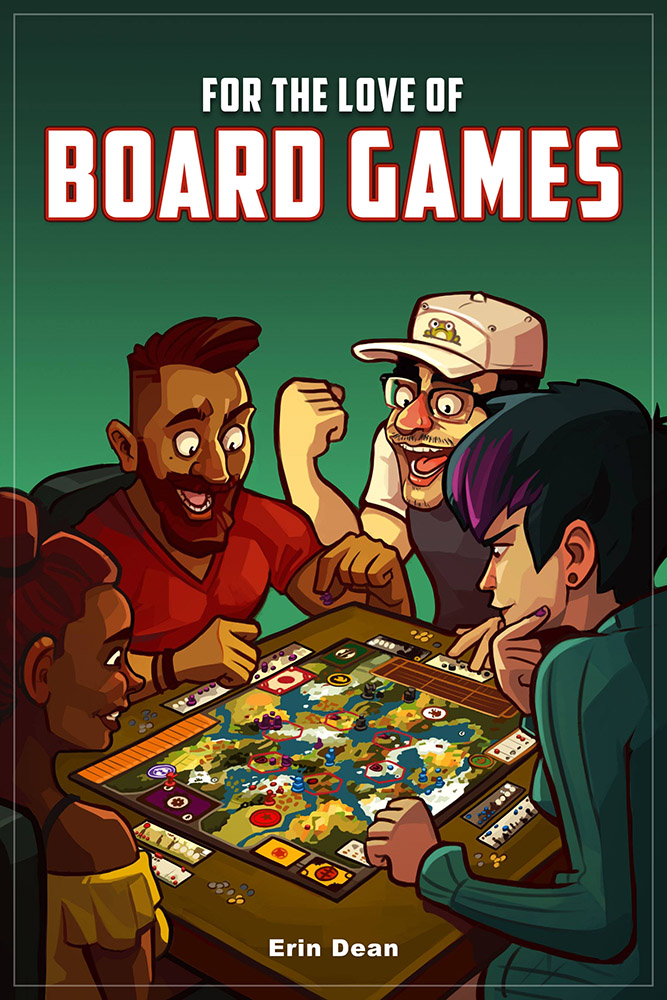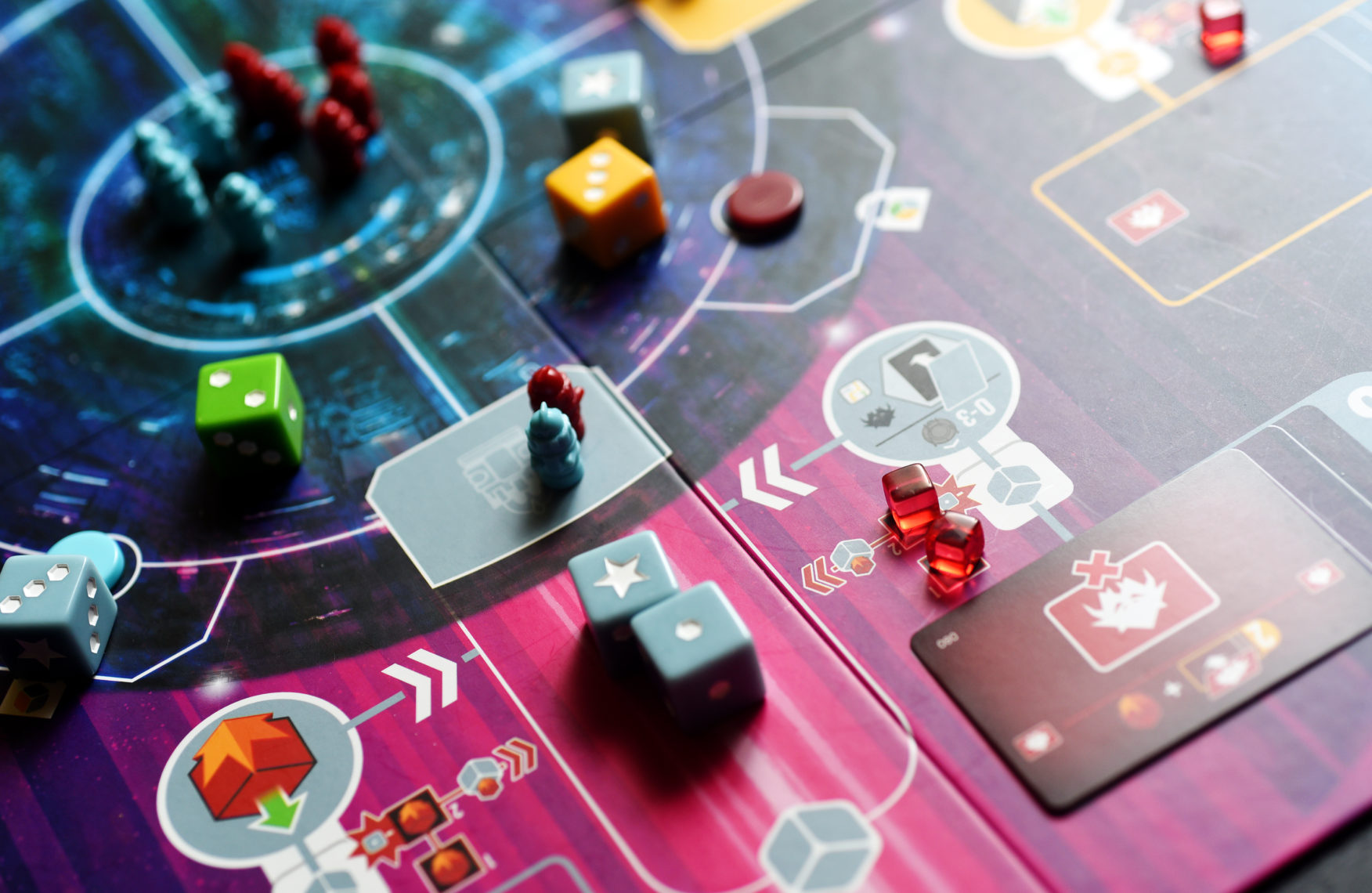So, yesterday I went on a rant about how it’s a Bad Thing for players to lean too heavily into game mechanic jargon. Today I want to pick up the thread of the argument to talk about why it’s also bad for designers.
When you read about how Richard Garfield came up with Magic: the Gathering or how Donald X. Vaccharino designed Dominion, both are very open about how they started with tried-and-true formats but then, after hundreds of hours of testing, had an life-changing moment of inspiration which “broke the mold” and spawned an entirely new kind of game.
Obviously, designers are lucky if they have such a moment once in their careers. Only a few (Francis Tresham comes to mind) are able to achieve it repeatedly; they are the true geniuses of our hobby. The huge majority begin their careers by copying what’s already out there. It’s an unskippable part of the process, finding one’s “voice”.
Classic Euro designers, as I discussed above, made theme subservient to mechanic–and again, since their audience drew from a similar population, fun-wise, there were few complaints. Yet there was by no means 100% agreement about whether this was the best of all worlds. As late as 2007, Phil Walker-Harding wrote a post on BGG about the whole “which comes first, theme or mechanic” question, and this post on the Boardgame Designers Forum articulated the difference (not commonly-understood at the time) between a game’s theme and its narrative.

Even in Erin Dean’s 2018 interview compilation For the Love of Boardgames, designers were asked which “philosophy” they followed. But several designers (Jamey Stegmaier; Jonathan Gilmour; Antoine Bauza, among others) had methods which transcended that duality, instead focusing on the experience they wanted players to have, the story they wanted the game to tell, and how to weave theme and mechanics together to serve that inspiration.
Furthermore, with the widening of the hobby over the last ten years, designers have come online who are more interested (and more adept) at hiding the welds holding theme and mechanic together. At all difficulty levels, from Cartographers to The Initiative to Pax Pamir (to name just three), there are now games that could not be rethemed without major changes to gameplay as well because their themes and mechanics were designed together holistically.
But mechanaholism is far from dead. There are still designers who are celebrated for their ability to pile mechanic upon mechanic–Daniele Tascini, Stefan Feld, and Alexander Pfister to name just three. Pfister has at least tried to add a narrative thread in games like Maracaibo and CloudAge, with arguable success (I think he needs to begin the collaboration with writers earlier in his design process).
The resulting games tend to score highly on BGG because the core of its userbase is mechanaholic and have become habituated to the challenge of juggling merely one or two. A game like Teotihuacan, for example, requires players to manage at least five central mechanics (rondel; set collection; tile placement; track movement; dice worker placement). And although the graphic presentation is lush, there is no reason the game has to be set in Mesoamerica. The theme could be Egypt, India, or even (with slight modifications to the building mechanic) contemporary New York and no one would blink an eye.
The resulting games–I call them “Dreadnoughts”–are in the main very satisfying to players who get their fun from mechanics alone. But the corollary is that they present very high barriers to entry for new or “tabletop-curious” players. As Tonya Pobuda, Toronto-based MA in Professional Communications and quantitative scholar, has written:
A game designer can prevent, consciously or not, the new gamer’s entrance into this semiotic lifeworld, its mechanics, and the mysteries of the game if she/he/they so choose.
The Dreadnoughts which work best for me (Gaia Project, Black Angel, Pipeline, On Mars, three of which have science-fiction themes…interesting…) are the ones where I feel the designers did the work of putting gameplay into at least some coherent narrative context. So in Black Angel, when I fight off Reavers, it doesn’t just benefit me (because they were threatening all of us players). Or, to take another example, when I’m On Mars, my choice of actions is totally dependent on the shuttle in the early game, whereas later on when I’ve buildup my colony and perhaps built a shuttle of my own, I have much more control over what I can do turn-to-turn.

The main downside to designers focusing so much on mechanics is that there are really only so many changes you can ring with pre-existing ones. I can’t tell you how many games I play which are perfectly fine but which feel like rearranging deck chairs on the Titanic because the “innovative” changes in tried-and-true mechanics have next to zero effect on my overall experience of the game. They’re “original” in the strict sense of not being plagiaristic copies of another game, but really have nothing new to bring to the table. In the end, I know I’m just turning cubes of one colour into cubes of a different colour and eventually VP. Zero immersion. How many more games like that are really necessary?
It’s a dangerous state of affairs, because it saturates the market with dozens if not hundreds of new games every year that will never get played more than a few times because they’re bland and unengaging, no matter how blingy the components. And this in turn contributes to fatigue and disenchantment as buyers get tired of the cycle of hype/shut-up-and-take-my-money/where’s-my-package/unboxing/meh.
Take 2020’s Traintopia, designed by Przemek Wojtkowiak, a relatively new designer (his earliest game on BGG is from 2014). It’s a little bit drafting, a little bit tile-laying, a little bit secret victory conditions, a lot of blah. Does it work? Yes. Do you really feel like you’re building The City of Tomorrow which is quite beautifully rendered on the box cover? No. Will you even end up with many actual trains? Surprisingly, no. (There aren’t even enough in the box to match what’s theoretically going to be available during a playthrough.) Traintopia is a game that should have been in development for longer so that the designer and publisher could have workshopped it into something more worthy of our attention–and dollars. But underdevelopment is a whole other topic.

On the other hand take the soon-to-be-released That Time You Killed Me, designed by Peter Hayward, another relative newcomer (his earliest design dates from 2016). This game is an abstract, and historically abstracts are known for being weakly-themed at best. But with TTYKM Hayward has threaded the needle by creating a game whose mechanics are not only fresh but also totally integrated with its time-travel theme. (I’ll be writing it up more fully soon. It’s a good’un.) But its mechanics don’t slot easily into pre-chewed categories, so even with the weight of a well-known publisher (Pandasaurus) behind it, I worry that it will sink from view. Well, not on my watch!
Tabletop needs a constant infusion of new designers with new and fresh ideas. But designers who keep mechanics as the main/exclusive focus of their process (a) are catering to only one slice of the consumer pie because many gamers need more than efficiency and engine-building, (b) are limiting their own vision by keeping themselves reined in by outworn established forms, and (c) flooding the market with a glut of games that are more “good enough” than “good”. And don’t we deserve better?
Tomorrow I’ll finish my tabletop jeremiad by looking at the role publishers have in keeping mechanics front-and-centre, and the danger that presents.
I am so guilty of this, perhaps because I learned mechanic terminology relatively recently in my love of games? You say it can be an initiation rite and it was! I felt that in my gut when I read that line, not because I want to gatekeeper but because it feels like a gate I am trying unsuccessfully to go through. And because there so damn many games out there, I do tend to sort them by both mechanic and themes, assuming I won’t be interested in a bidding game or a game about horror, even though I really enjoy both Power Grid and Betrayal. Excited what you have to say tomorrow!
Thanks, Alice! I think you hit on a point I could have explained better: though they’re both ways to categorize games, mechanics are *not* synonymous with genres.